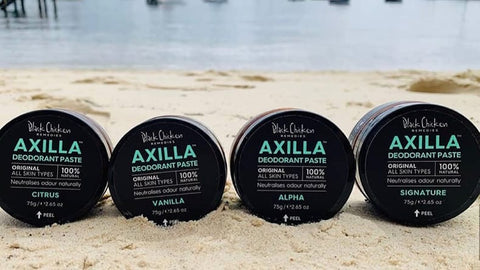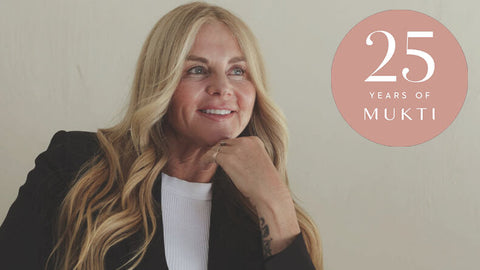Which salts are best for our skin?
There’s salt and there’s salt. The refined, dehydrating type we try to avoid in our diets doesn’t do our skin and hair any favours either. However there are a variety of mineral salts and common names:
Dead Sea mineral salt - This salt is derived from the Dead Sea, which has an extremely high density of salt in comparison to other oceans. Studies have indicated that it can improve skin barrier functions, reduced skin roughness, and inflammation.
Pink Himalayan salt- This salt is sourced from salt deposits in Pakistan. Its beautiful pink colouring comes naturally from halite and iron oxide.
Sodium chloride - This salt is commonly used for cleaning wounds, as a cleansing agent in toothpaste, in saline eye drops, and in IV drips.
Magnesium sulphate and magnesium chloride - They're not technically salts, but I wouldn't pass up an opportunity to rave about magnesium! Magnesium sulphate is the compound name for Epsom salt. Magnesium sulphate is perfect for adding to baths for a relaxing soak; it is also commonly found in magnesium supplements. Magnesium chloride is used in more clinical settings, such as in hospitals for severe deficiencies. For more about the differences, head over to my blog about magnesium and Epsom salt here.
Mineral salts are hugely beneficial to the skin, thanks to the high magnesium content, and calcium (as well as zinc and potassium). This may help plump up skin because it attracts and binds water, and improves hydration by strengthening the barrier function of the skin. In a clinical trial, a significant decrease in skin roughness on the salt-exposed skin occurred after three weeks, with continuing improvement [1]. For centuries, ’taking the waters’ (which refers to ancient communal bathing in natural springs or temple baths which ere rich in mineral salts) has also been documented to be therapeutic for soothing mild forms of dermatitis, eczema and dry skin [2]. Salt grains are also found in many scrubs, as their shape helps to exfoliate the skin. Under the microscope, salt crystals appear in the form of cubes; the edges of these cubes are beneficial for naturally exfoliating the skin.
Natural skincare with salts
Life Basics Bath Softener
Drop half a cup of Life Basics Vitamin C Bath Softener into your bath to neutralise the chlorine in your water which may help soothe common skin irritations. The combination of Dead Sea Mineral Salt and Vitamin C has been formulated to be gentle enough on even the most sensitive and dry skin types.
Eco Tan Pink Himalayan Salt Scrub
Eco Tan’s Pink Himalayan Salt Scrub contains a gorgeous combination of Himalayan Salt, lemongrass, coconut oil and macadamia oil. It preps skin for a new fake tan (plus it buffs off a lingering one), and it may also work on stretch marks, cellulite and dry, dull skin.
Hair
Noosa Basics Sea Spray
The Noosa Basics Sea Spray adds beachy waves with this aloe vera based formulation. The spray acts like ocean water to encourage effortless waves. The sea salt creates and holds waves for a summery look, while argan oil ensures there’s no crunchiness to your curls.

Teeth
Weleda Salt Toothpaste
The Weleda Salt Toothpaste has a strangely addictive salty taste, combined with tingly-fresh peppermint. I’ll admit it’s an unusual combination, but reserve your judgement until you try it for yourself. This toothpaste helps to whiten teeth with each use and keep them healthy.
(Sources: [1] International Journal of Dermatology, [2] Journal of Cosmetics, Dermatological Sciences and Applications)



